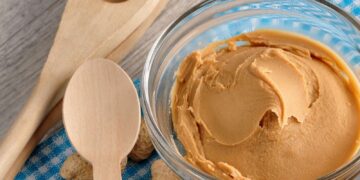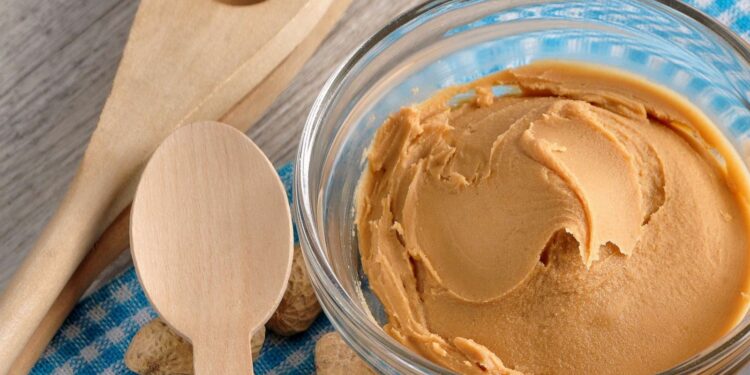Peanut butter is known the world over and is one of the most popular and versatile spreads. Peanut butter is relativity inexpensive and contains a high amount of protein and fat. Is peanut butter good for you? Or should you only eat it in moderation? There are a few hidden downsides to peanut butter that make it best to eat in moderation.
A large-scale study found that eating whole nuts and peanuts correlated with longevity but eating peanut butter did not. The researchers outlined a few potential reasons peanuts link to longevity, but peanut butter does not:
Commercial peanut butter often has added sugar
A lot of commercial peanut butter contain added sugar or high-fructose corn syrup, which makes them harder to fit into a ketogenic diet. But even if you aren’t keto, you’re better off avoiding sugar. Added sugars have been linked to weight gain, type 2 diabetes, heart disease, high blood pressure, obesity-related cancers.
It’s easy to overeat
If you’re adding peanut butter to a sandwich or a smoothie, you need to be careful of how much you’re actually using. It’s easy to lose track of how many tablespoons you’ve scooped out once you get started, which then leads to over-consume it.
Store-bought varieties often contain hydrogenated oils (trans fat)
A lot of companies make “no-stir” peanut butter that stays together and is especially smooth and creamy. While no-stir peanut butter is delicious, it’s the result of producers adding fully or partially hydrogenated oils (aka sources of trans fat) to make the peanut butter stay homogenous at room temperature. Hydrogenated oils are bad for your health. They can lead to higher LDL cholesterol levels, lower HDL cholesterol, inflammation, hormonal imbalances, heart disease, stroke, type 2 diabetes.
It can have a lot of sodium
Make sure you’re looking at the nutrition facts of your favourite peanut butter carefully because it could contain anywhere between 22-200 milligrams of sodium!
Peanuts (aka legumes) can be hard to digest
Peanuts are legumes, not tree nuts. Because of this, many people have a hard time digesting peanuts and feel similar effects — such as gas and bloating as they do when they eat soybeans or lentils.
The medical information provided in this article is provided as an information resource only. This information does not create any patient-physician relationship and should not be used as a substitute for professional diagnosis and treatment.





































